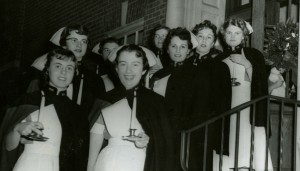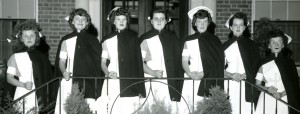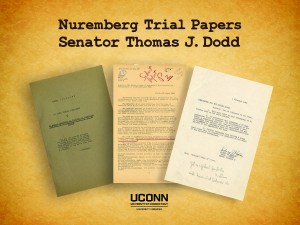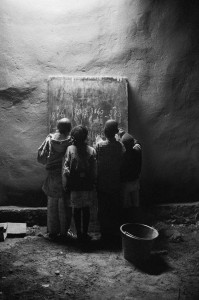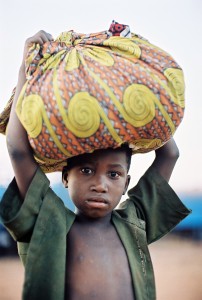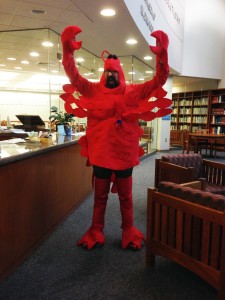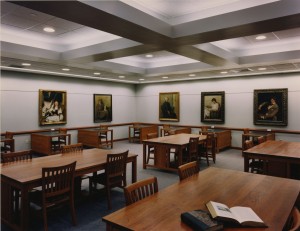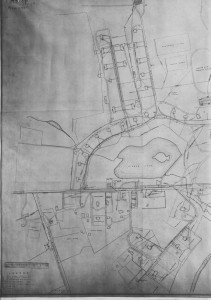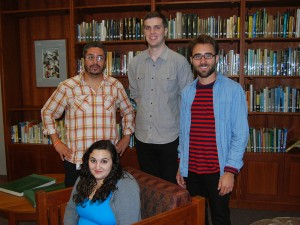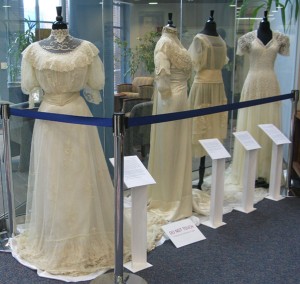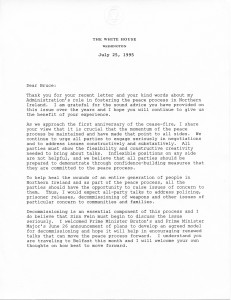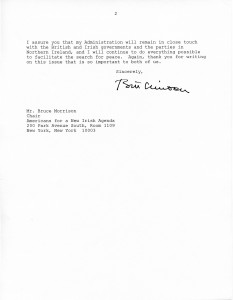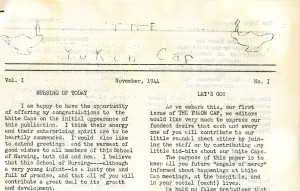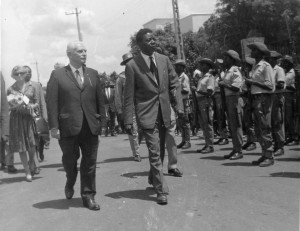
Thomas J. Dodd and Moise Tshombe, 1961
“…the role of the Senate [is] to advise on foreign policy and not merely to assent to faits accomplish…”
Sen. Thomas J. Dodd to Sec. of State Dean Rusk, December 1964[i]
Within two weeks of the Congo gaining independence from Belgium in June 1960, the mineral-rich Katanga province attempted to secede, thrusting the country into chaos. The Eisenhower administration intervened in order to prevent a communist takeover of the nation. During the Kennedy administration U.S. involvement marked an unprecedented projection of American power in sub-Saharan Africa. As Secretary of State Dean Rusk said in July of 1962, “there was no other problem including Berlin in which [the] President, [the] Secretary and senior colleagues have spent as much time as [the] Congo.”[ii] The event created a paper trail at the Kennedy Presidential Library second only in volume to Vietnam; surpassing that of Britain, and even of the Soviet Union.[iii] When including donations to UN operations, U.S. aid given to that country amounted to hundreds of millions of dollars.
As I argue more thoroughly in my dissertation, the Kennedy administration viewed the crisis not only as central to the Cold War, but also to decolonization. In 1960 alone, seventeen African nations declared independence. By intervening in the Congo, Kennedy wanted to prove to newly emerging nations on the African continent, as well as the Third World at large, that American-styled democracy and capitalism could secure political and economic freedom for colonially oppressed peoples. Like other U.S. interventions during this era, however, events did not turn out as American policymakers had expected. Gen. Joseph Mobutu ascended to power in 1965, ruling the country as a dictator until 1997. The decay of the state under his rule contributed to the destabilization of the region and approximately five million deaths even after he had departed from power.[iv]
Sen. Thomas J. Dodd (D-CT) was one of the leading opponents of the Kennedy administration’s policies in the Congo. Believing Kennedy’s sympathy with Third World nationalism had caused the President to lose sight of the larger Cold War struggle, Dodd used his position on the Senate Foreign Relations Committee to effectively challenge the power of the executive branch. Dodd supported Moise Tshombe, the leader of Katanga with whom the Kennedy administration was at odds. Even though Tshombe was reviled by the Afro-Asian bloc for betraying Patrice Lumumba, the first Prime Minister of the Congo who was assassinated by Belgium in 1961, Dodd argued that the United States should nonetheless support Tshombe’s bid for power since he was a self-avowed anti-communist willing to partner with the West.
The UN thwarted Tshombe’s secession in 1963, but through an unlikely turn of events he became Prime Minister in 1964. By then the Kennedy administration’s nation-building efforts had failed to transform the Congo into a viable nation-state, and leftist revolutionaries with support from Algeria, Cuba, and China, were seeking to overthrow the government. Dodd’s persistent lobbying in Washington had kept alive the possibility of Tshombe becoming an American ally. Indeed, Dodd’s advocacy made a difference when the Johnson administration began searching for a new Congolese leader to back, one capable of warding off the revolutionaries and partnering with the West to bring stability to the country.
As a recipient of a Rose and Sigmund Strochlitz Travel Grant, I was able to spend a week examining Dodd’s papers at the Archives & Special Collections at the Thomas J. Dodd Research Center located on the campus of the University of Connecticut in Storrs. With approximately seven linear feet of material relating to the Congo, it is an especially rich collection that provides a detailed account of the Senator’s opposition to the Kennedy administration’s policies as well as his advocacy for Tshombe. Some of the highlights of the collection include private memoranda between Dodd and his staff, the itinerary and notes from Dodd’s trip to the Congo in 1961, speeches and periodical articles written by Dodd, reports from American missionaries in the Congo, and correspondence between Dodd and Presidents Kennedy and Johnson, Secretary of State Rusk, Tshombe, and Tshombe’s representatives. The collection also contains official government documents from Katanga, including cabinet meeting minutes.[v]
Scholars studying U.S. foreign policy and/or the Congo will find this collection informative. It serves as a prescient reminder that congress can effectively challenge a president’s foreign policy, and helps reveal the agency and vision of Tshombe whom conventional narratives have portrayed as a puppet of Western interests. Recent events in that country demand that we examine its history, of which this collection helps to illuminate.
–William Mountz, PhD Candidate, University of Missouri
Recipient of a 2013 Strochlitz Travel Grant
[i] Letter from Sen. Thomas J. Dodd to Sec. of State Dean Rusk, 21 Dec. 1964, Box 260, Thomas J. Dodd Papers, Archives & Special Collections at the Thomas J. Dodd Research Center, University of Connecticut, Storrs, CT.
[ii] Telegram from the Department of State to the Embassy in the Congo, 7 Jul. 1962, Foreign Relations of the United States, 1961-1963, vol. 20 (Washington, DC: GPO, 1994), 501-503.
[iii] John Kent, America, the U.N. and Decolonization: Cold War Conflict in the Congo (New York: Routledge, 2010), 2.
[iv] Gerard Prunier, Africa’s World War: Congo, the Rwandan Genocide, and the Making of a Continental Catastrophe (New York: Oxford University Press, 2011); Jason Stearns, Dancing in the Glory of Monsters: The Collapse of the Congo and the Great War of Africa (New York: PublicAffairs, 2011).
[v] Researchers will also be happy to know that they will encounter an exceptionally professional and friendly archival staff.

